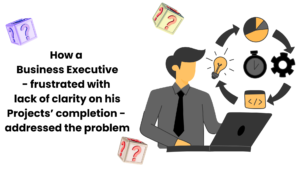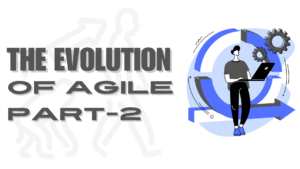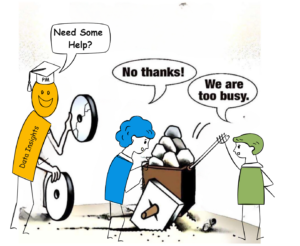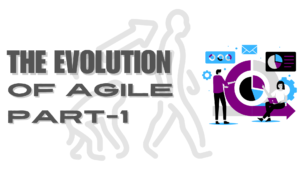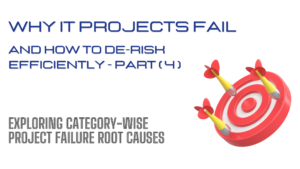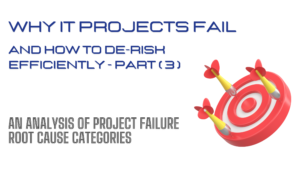Data Vs Destiny - How Data-driven Project Management fuels intuitive Leadership
Inspired by the Indian Cricket team’s 2024 T20 World cup triumph.
Introduction:
In the heart-pounding final moments of the T20 World Cup 2024, India, against all odds and defying algorithmic predictions, clinched victory from the jaws of defeat. The win probability algorithm, a complex model factoring in historical data, player performance, and match conditions, had calculated a near 92% chance of victory for South Africa leading into the final four overs. Yet, this data-driven prediction crumbled in the face of human ingenuity, resilience, and the unpredictable nature of sports.
This remarkable upset wasn’t just a testament to athletic prowess; it was a living embodiment of the power of human intuition & conviction. Though data analytics unveil crucial patterns, the human element—experience, intuition, and the unwavering resolve to persevere—remains essential . The most effective leaders and teams leverage both, using data to build their strategies and intuition to execute them with precision and flair.
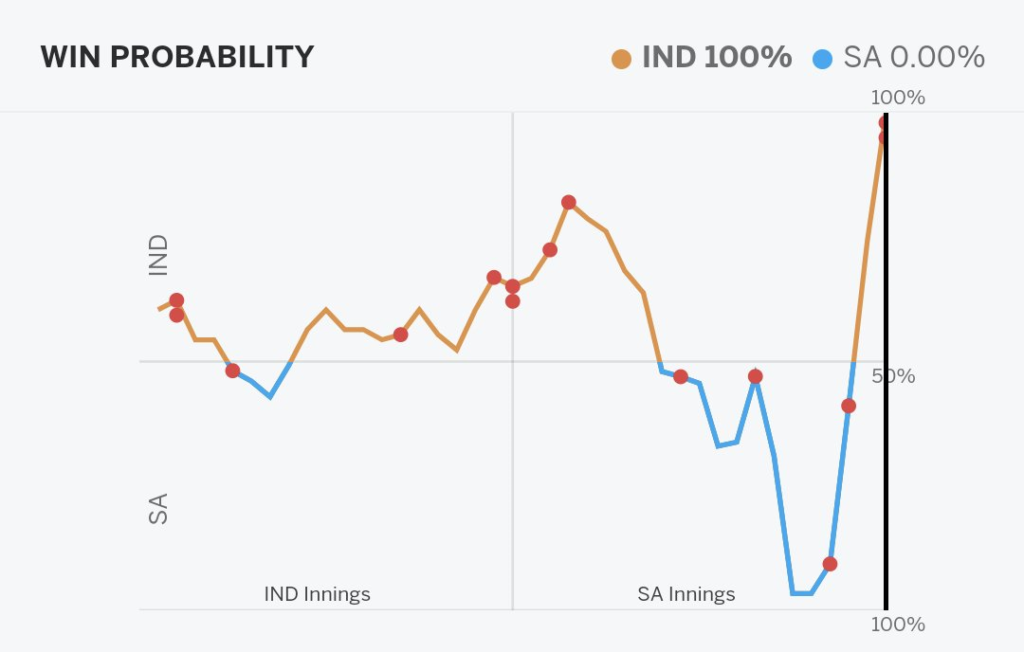
The Data’s Verdict vs. The Human Spirit: A Powerful Partnership
Leading up to the final four overs, the win predictor heavily favoured South Africa, with a near 92% chance of victory. The data painted a stark reality, revealing the immense challenge India faced. However, this data-driven insight became a catalyst for action, not despair. Recognizing the odds, the Indian team tapped into their collective experience and intuitive understanding of the game. Surya Kumar Yadav’s gravity-defying catch, followed by Hardik Pandya’s composure under pressure and Rohit Sharma’s astute captaincy, showcased the power of human instinct, honed through years of practice and competition.
This victory serves as a powerful reminder that data and intuition are not opposing forces, but complementary tools. Data provides crucial information and insights, while human intuition, informed by experience and expertise, enables agile decision-making and adaptation in the face of unforeseen challenges.
The Science of Conviction in the C-Suite:
Conviction isn’t mere gut feeling; it’s a cognitive process rooted in experience, pattern recognition, and emotional intelligence. Studies in neuroscience reveal that intuition activates regions of the brain associated with rapid decision-making and risk assessment.
For CEOs, this means that while data provides a foundation, the ability to synthesize information, connect disparate dots, and trust one’s instincts is paramount. So let us get together the CXO’s Balancing Act on Data vs. Destiny with few analogies. .
- The Navigator and the Compass: Data is like a compass, providing a reliable directional guide. But a skilled navigator knows that a compass alone won’t guarantee a safe voyage. They must also rely on intuition, experience, and an understanding of the ever-changing seascape to make course corrections and navigate unexpected storms.
As COO of Facebook, Sheryl Sandberg implemented a data-centric approach to advertising, leveraging user behavior and demographics to target ads with precision. However, she also recognized the importance of emotional connection and storytelling in building a brand. This dual focus on data and human psychology fueled Facebook’s meteoric rise. - The Chef and the Recipe: Data is akin to a recipe, offering a structured framework for creating a dish. But a master chef understands that the best culinary creations often result from a pinch of this, a dash of that, and a willingness to deviate from the script based on instinct and experience.
Amazon’s founder Jeff Bezos famously advocates for “two-pizza teams”—small, autonomous groups that can be fed with two pizzas. While data informs their decision-making, these teams are empowered to experiment, iterate, and trust their instincts, fostering an environment where both data and intuition thrive.
Practical Takeaways for CXOs:
- The Unseen Hand: Back-end Management in India’s T20 Triumph: The Indian team’s triumph wasn’t solely the result of Virat’s innings or Bumrah’s bowling or even SKY’s catch; it was a collective display of synchronized efforts orchestrated by a well-oiled preparatory machine.
From analysing player data and fitness levels to strategizing match tactics and managing logistics, every aspect of the T20 campaign was meticulously planned and executed. SKY’s catch, which turned out to be the match’s most crucial moment, did not occur on the fly. The coaching staff made all players practice the scenarios in several instances. This behind-the-scenes project management ensured that the team was prepared for every eventuality, allowing them to adapt to the unpredictable nature of the game and seize the moment when destiny called.
In the C-suite, just as on the cricket pitch, the importance of project management is a must. While data and intuition are essential, they need a structured framework to translate into actionable results. A robust project management tool can serve as the backbone of this framework.
- Embrace Data, but don’t be enslaved by it: Data is a powerful tool, but it’s not a substitute for human judgment. Use data to inform your decisions, but don’t let it dictate them.
- Cultivate a culture of curiosity and experimentation: Encourage your team to challenge assumptions, explore new ideas, and take calculated risks. This fosters an environment where intuition can flourish alongside data-driven insights.
- Trust your gut, but verify: When your intuition tells you something, don’t dismiss it. Instead, seek out data and evidence to support or refute your gut feeling based on the visual reports shared by the tool in usage. This iterative process of testing and refining intuition is key to making sound decisions.
The CXO’s balancing act between data and destiny is a dynamic and ever-evolving process. By embracing the power of both data-driven insights and intuitive judgment, C-suite leaders can navigate the complexities of the modern business landscape with confidence and agility. Similar to the way the Indian cricket team played in the world cup T20 2024, they can defy the odds, rewrite the script, and achieve extraordinary results.
Art of cultivating intuitive leadership: A data-driven Toolkit for the modern C-suite
Intuition isn’t a mystical gift; it’s a honed skill, a muscle that strengthens with practice. To cultivate intuitive leadership in the C-suite, consider these strategies:
- The “10,000 Hours” Principle: Just as Malcolm Gladwell’s research suggests that 10,000 hours of practice are needed to master a skill, honing intuition requires exposure to vast amounts of data. Much like a virtuoso violinist honing their craft through countless hours of practice, the Indian cricket team’s success in T20 is not merely a stroke of luck. It’s the culmination of thousands of “deliveries” – each match, each training session, each strategic meeting – that have shaped the team into a well-oiled machine. Consider the role of the team management:
- The Conductor: The coach isn’t just a mentor; they’re a project manager, orchestrating the talents of individual players, ensuring each “instrument” is tuned and ready to perform.
- The Scorecard: Data analysis isn’t just about numbers; it’s the equivalent of tracking project milestones, identifying areas for improvement, and adjusting strategies in real-time. Investing in a supporting system to generate the score card is necessary in this digital age.
- The Dugout Huddle: Team meetings aren’t just pep talks; they’re project status updates, where challenges are addressed, solutions are brainstormed, and a unified vision is reinforced.
- Embrace the “Beginner’s mind”: While Zen Buddhism emphasizes approaching situations with a beginner’s mind free of preconceived notions, data can serve as a valuable guide. CXOs should use data to challenge their assumptions, question conventional wisdom, and explore new perspectives. This data-informed openness creates fertile ground for intuitive insights to emerge.
- The “Second Chair” Strategy: Like a seasoned musician who jams with others to expand their repertoire, C-suite leaders can benefit from engaging in brainstorming sessions and seeking diverse viewpoints. Encourage them to create a “second chair” network of trusted advisors, utilizing data to spark new ideas and challenge existing assumptions.
- The “Gut check” ritual, informed by data: Similar to athletes who visualize success before a game, CXOs can enhance their daily “gut check” ritual by reviewing relevant data and analytics. This could involve setting aside time for quiet reflection, journaling, or simply tuning into their intuition to assess their gut feelings about important decisions. This data-informed reflection can help validate or refine their gut feelings, leading to more confident and effective decision-making.
- The “Overnight test”: Jeff Bezos, founder of Amazon, is known for his “overnight test”. Before sleeping on a decision, CXOs can review relevant data and allow their subconscious mind to process it alongside their intuition. This data-infused incubation often leads to clearer insights and a stronger sense of conviction.
Conclusion: Data, Intuition, and Destiny in the Boardroom
India’s T20 World Cup victory is a powerful parable for the C-suite.
It underscores that while data is an indispensable tool, a must-have that fuels strategy and decision-making, it is the data complemented by the human element – the skill, the passion, the intuitiveness, and the unwavering belief – that ultimately shapes our destiny.
By embracing the art of intuitive decision-making, informed by data-driven insights, CXOs can transform data into destiny, guiding their companies to extraordinary achievements, just as Rohit Sharma led his team to an improbable World Cup triumph.
The world of business, like the world of sports, is full of surprises, and it’s the ability to embrace the unexpected, armed with both data and intuition, that truly sets us apart.
